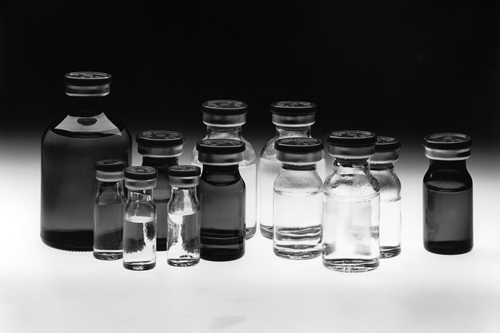10 October 2016. A clinical trial shows an experimental therapy addressing a common cancer-causing mutation is safe, with early indications of its efficacy against ovarian cancer. The report by biopharmaceutical company Aprea Therapeutics of the study testing its treatment candidate code-named APR-246 was presented today at a meeting of the European Society for Medical Oncology, or Esmo, in Copenhagen.
Aprea Therapeutics, in Stockholm and Boston, develops treatments that target the p53 tumor suppressor gene, whose mutations are involved with more than half of all tumors. These mutations are associated with a wide range of tumor types, and tumors expressing proteins from these mutations are also increasingly resistant to chemotherapy.
In its original, or non-mutated form, the p53 gene activates proteins that start a series of events attacking and killing tumor candidate cells before they become cancerous, thus suppressing the formation of tumors. Should the p53 gene be compromised, through genetic inheritance or environmental factors, that protective function can stop, allowing tumors to form and grow unchecked. Moreover, dysfunctional forms of p53 up to now needed treatments addressing those specific variations, thus therapies targeting specific p53 mutations had limited benefits.
Aprea designed APR-246 as a small-molecule, or low molecular-weight, drug that binds to and refolds proteins coded by mutant p53 genes. This process, says the company, stabilizes the mutant p53 proteins and restores their original protective functions that suppress tumor growth. Aprea says APR-246 was tested in preclinical studies on models of blood-related and solid tumor cancers, including ovarian cancer, small cell lung cancer, esophageal cancer, and acute myeloid leukemia.
The clinical trial reported at the Esmo meeting is testing APR-246 among 28 women diagnosed with serous ovarian cancer, the most common form of the disease, accounting for about two-thirds of all cases. The early-stage trial is testing the safety of APR-246 at 3 dosage levels. APR-246 is administered in combination with the chemotherapy drug carboplatin, often prescribed to treat ovarian cancer, and a formulation of doxorubicin, another chemotherapy drug, in polymer-coated liposomes, or natural oil bubbles, that extends its circulation time. The study is also measuring the chemical activity of APR-246 in the body and early indicators of efficacy.
Aprea reports the results show patients receiving all 3 dosage levels of APR-246 experience low-grade adverse effects including nausea, vomiting, dizziness, fatigue, and low white blood cell and blood platelet counts. In addition, APR-246 does not appear to accumulate in the body, nor does it interact with the chemotherapy drugs, suggesting that APR-246 can be used with chemotherapy.
Of the 28 participants, 22 have tumors with measurable lesions, and of that sub-group 3 report a complete response to the treatment, and 10 show a partial response. The median progression-free survival time of these patients is 316 days. Of 2 other patients with non-measurable disease, 1 reports a complete response, and the other has a disease still progressing.
The results show the highest dose level is safe enough to continue into a second part of the same clinical trial, an intermediate-stage study testing APR-246 among women with serous ovarian cancer, combined with the chemotherapy drugs, against the chemotherapy drugs alone. The company is now recruiting participants for the trial, conducted at a number of sites in the U.K. and Europe.
Read more:
- Adverse Effects Reports in Cancer Trials Seen Lacking
- $1.2M Challenge Seeking More Accurate Mammograms
- PhRMA: 258 Vaccines in Clinical Development
- Robo-Bacteria Engineered for Cancer Drug Delivery
- FDA Funding Brain Tumor Treatment Trial
* * *


 RSS - Posts
RSS - Posts
You must be logged in to post a comment.